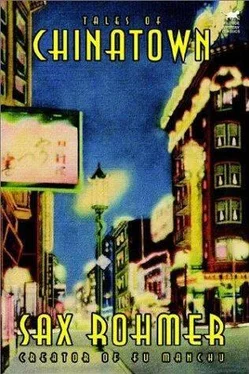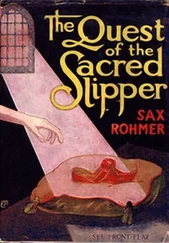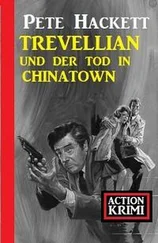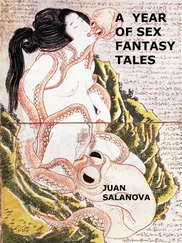Vaguely the truth was stealing in upon the mind of the dancing- girl that she had been made party to a plot to murder Grantham. She had saved his life. He belonged to her now. She could hear him speaking, although for some reason she could not see him. A haze had come, blotting out everything but the still, ungainly figure which lay so near her upon the carpet, one clutching, fat hand, upon which a diamond glittered, outstretched so that it nearly touched her bare white feet.
"We must get out this way! The side door to the courtyard! None of us can afford to be mixed up in an affair of this sort."
There was more confused movement and a buzz of excited voices- meaningless, chaotic. Zahara could feel the draught from the newly opened door. A thin stream of blood was stealing across the carpet. It had almost reached the fallen rose petals, which it strangely resembled in colour under the light of the lanterns.
As though dispersed by the draught, the haze lifted, and Zahara saw Grantham standing by the open doorway through which he had ushered out the other visitors.
Wide-eyed and piteous she met his glance. She had seen that night the Look in his eyes. She had saved his life, and there was much, so much, that she wanted to tell him. A thousand yearnings, inexplicable, hitherto unknown, deep mysteries of her soul, looked out of those great eyes.
"Don't think," he said tensely, "that I was deceived. I saw the trick with the rose! You are as guilty as your villainous lover! Murderess!"
He went out and closed the door. The flame-coloured cloak slowly slipped from Zahara's shoulders, and the veils, like falling petals, began to drop gently one by one upon the blood-stained carpet.
THE HAND OF THE MANDARIN QUONG
I. THE SHADOW ON THE CURTAIN
"Singapore is by no means herself again," declared Jennings, looking about the lounge of the Hotel de l'Europe. "Don't you agree, Knox?"
Burton fixed his lazy stare upon the speaker.
"Don't blame poor old Singapore," he said. "There is no spot in this battered world that I have succeeded in discovering which is not changed for the worse."
Dr. Matheson flicked ash from his cigar and smiled in that peculiarly happy manner which characterizes a certain American type and which lent a boyish charm to his personality.
"You are a pair of pessimists," he pronounced. "For some reason best known to themselves Jennings and Knox have decided upon a Busman's Holiday. Very well. Why grumble?"
"You are quite right, Doctor," Jennings admitted. "When I was on service here in the Straits Settlements I declared heaven knows how often that the country would never see me again once I was demobbed. Yet here you see I am; Burton belongs here; but here's Knox, and we are all as fed up as we can be!"
"Yes," said Burton slowly. "I may be a bit tired of Singapore. It's a queer thing, though, that you fellows have drifted back here again. The call of the East is no fable. It's a call that one hears for ever."
The conversation drifted into another channel, and all sorts of topics were discussed, from racing to the latest feminine fashions, from ballroom dances to the merits and demerits of coalition government. Then suddenly:
"What became of Adderley?" asked Jennings.
There were several men in the party who had been cronies of ours during the time that we were stationed in Singapore, and at Jennings's words a sort of hush seemed to fall on those who had known Adderley. I cannot say if Jennings noticed this, but it was perfectly evident to me that Dr. Matheson had perceived it, for he glanced swiftly across in my direction in an oddly significant way.
"I don't know," replied Burton, who was an engineer. "He was rather an unsavoury sort of character in some ways, but I heard that he came to a sticky end."
"What do you mean?" I asked with curiosity, for I myself had often wondered what had become of Adderley.
"Well, he was reported to his C. O., or something, wasn't he, just before the time for his demobilization? I don't know the particulars; I thought perhaps you did, as he was in your regiment."
"I have heard nothing whatever about it," I replied.
"You mean Sidney Adderley, the man who was so indecently rich?" someone interjected. "Had a place at Katong, and was always talking about his father's millions?"
"That's the fellow."
"Yes," said Jennings, "there was some scandal, I know, but it was after my time here."
"Something about an old mandarin out Johore Bahru way, was it not?" asked Burton. "The last thing I heard about Adderley was that he had disappeared."
"Nobody would have cared much if he had," declared Jennings. "I know of several who would have been jolly glad. There was a lot of the brute about Adderley, apart from the fact that he had more money than was good for him. His culture was a veneer. It was his check-book that spoke all the time."
"Everybody would have forgiven Adderley his vulgarity," said Dr. Matheson, quietly, "if the man's heart had been in the right place."
"Surely an instance of trying to make a silk purse out of a sow's ear," someone murmured.
Burton gazed rather hard at the last speaker.
"So far as I am aware," he said, "the poor devil is dead, so go easy."
"Are you sure he is dead?" asked Dr. Matheson, glancing at Burton in that quizzical, amused way of his.
"No, I am not sure; I am merely speaking from hearsay. And now I come to think of it, the information was rather vague. But I gathered that he had vanished, at any rate, and remembering certain earlier episodes in his career, I was led to suppose that this vanishing meant--"
He shrugged his shoulders significantly.
"You mean the old mandarin?" suggested Dr. Matheson.
"Yes."
"Was there really anything in that story, or was it suggested by the unpleasant reputation of Adderley?" Jennings asked.
"I can settle any doubts upon that point," said I; whereupon I immediately became a focus of general attention.
"What! were you ever at that place of Adderley's at Katong?" asked Jennings with intense curiosity.
I nodded, lighting a fresh cigarette in a manner that may have been unduly leisurely.
"Did you see her?"
Again I nodded.
"Really!"
"I must have been peculiarly favoured, but certainly I had that pleasure."
"You speak of seeing her" said one of the party, now entering the conversation for the first time. "To whom do you refer?"
"Well," replied Burton, "it's really a sort of fairy tale-unless Knox"-glacing across in my direction-"can confirm it. But there was a story current during the latter part of Adderley's stay in Singapore to the effect that he had made the acquaintance of the wife, or some member of the household, of an old gentleman out Johore Bahru way-sort of mandarin or big pot among the Chinks."
"It was rumoured that he had bolted with her," added another speaker.
"I think it was more than a rumour."
"Why do you say so?"
"Well, representations were made to the authorities, I know for an absolute certainty, and I have an idea that Adderley was kicked out of the Service as a consequence of the scandal which resulted."
"How is it one never heard of this?"
"Money speaks, my dear fellow," cried Burton, "even when it is possessed by such a peculiar outsider as Adderley. The thing was hushed up. It was a very nasty business. But Knox was telling us that he had actually seen the lady. Please carry on, Knox, for I must admit that I am intensely curious."
"I can only say that I saw her on one occasion."
"With Adderley?"
"Undoubtedly."
"Where?"
"At his place at Katong."
"I even thought his place at that resort was something of a myth," declared Jennings. "He never asked me to go there, but, then, I took that as a compliment. Pardon the apparent innuendo, Knox," he added, laughing. "But you say you actually visited the establishment?"
Читать дальше












